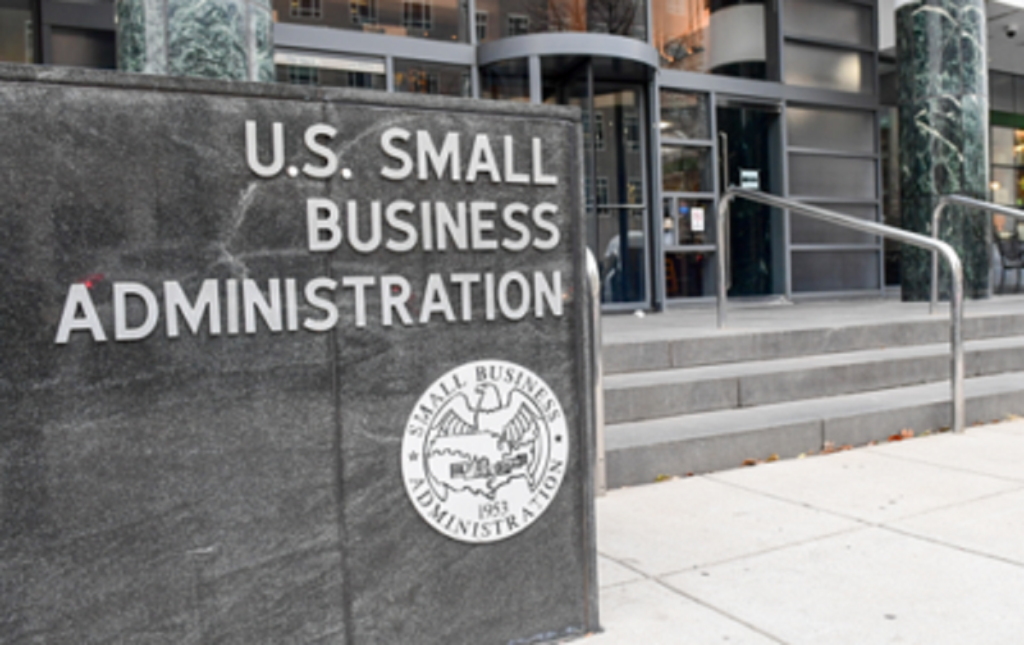Historical significance of HBCUs
In a segregated, post-Civil War country, historically Black colleges and universities provided Black Americans — who were often denied access to existing higher education institutions — with a quality education. These colleges are still some of the country’s top producers of Black doctors, scientists and engineers, and offer opportunities to a diverse student body. Many well-known and respected artists, CEOs, activists and political leaders are graduates of these institutions. These are the 20 top-ranked HBCUs, per U.S. News data. To be ranked, an HBCU had to be a baccalaureate-granting undergraduate institution that enrolled primarily first-year, first-time students.
20. Lincoln University (PA)
Overall rank: 126 (tie), Regional Universities (North)
Undergraduate 2023 enrollment: 1,717
Tuition and fees for 2024-2025: $12,512 (in-state), $18,464 (out-of-state)
Six-year graduation rate for students entering in fall 2017: 52%
Lincoln University — chartered in 1854 as The Ashmun Institute — is the first degree-granting HBCU in the U.S., according to its website. In honor of then-President Abraham Lincoln, the Pennsylvania HBCU was renamed Lincoln University in 1866. During the school’s first 100 years history, Lincoln graduated about 20% of the nation’s Black doctors and more than 10% of Black lawyers, per the university. Poet Langston Hughes and the late U.S. Supreme Court Justice Thurgood Marshall are among Lincoln’s notable alumni.
19. Clark Atlanta University (GA)
Overall rank: 352 (tie), National Universities
Undergraduate 2023 enrollment: 3,495
Tuition and fees for 2024-2025: $28,310
Six-year graduation rate for students entering in fall 2017: 48%
Formed out of a union between Clark College — the first four-year liberal arts college to primarily serve Black students — and Atlanta University, Clark Atlanta University opened its doors in 1988. Located a few miles from downtown Atlanta and near three HBCUs, CAU is home to several on-campus research centers and is a member of the Georgia Research Alliance, a nonprofit aimed at increasing collaboration among research universities in the state.
16 (tie). Dillard University (LA)
Overall rank: 153 (tie), National Liberal Arts Colleges
Undergraduate 2023 enrollment: 1,117
Tuition and fees for 2024-2025: $22,594
Six-year graduation rate for students entering in fall 2017: 45%
Formed out of the consolidation of two institutions — New Orleans University and Straight University — Dillard University in Louisiana opened its doors in 1935, according to the school’s website. Nearly 10 years later, in 1944, Dillard became a founding member of the United Negro College Fund, which now provides financial support to 37 HBCUs and college scholarships. Alumni include actor-comedian Garrett Morris and Revius O. Ortique Jr., the first Black justice on the Louisiana Supreme Court.
16 (tie). Fisk University (TN)
Overall rank: 158 (tie), National Liberal Arts Colleges
Undergraduate 2023 enrollment: 965
Tuition and fees for 2024-2025: $26,582 (Data from the school’s website)
Six-year graduation rate for students entering in fall 2017: 44%
Founded in 1865, two years after the Emancipation Proclamation, Fisk University is the oldest institution of higher education in Nashville, Tennessee. The school has multiple notable alumni and faculty members who were prominent intellectual and civic leaders, such as sociologist W.E.B. Du Bois, civil rights activist John Lewis and journalist Ida B. Wells. Booker T. Washington, who founded Tuskegee University in Alabama, served on Fisk’s board of trustees.
16 (tie). University of Maryland Eastern Shore
Overall rank: 388 (tie), National Universities
Undergraduate 2023 enrollment: 2,233
Tuition and fees for 2024-2025: $9,076 (in-state), $20,122 (out-of-state) (Data from the school’s website)
Six-year graduation rate for students entering in fall 2017: 35%
Originally founded as the Delaware Conference Academy in 1886 under the auspices of the Methodist Episcopal Church, the University of Maryland Eastern Shore later became a doctoral degree-granting institution. Given its proximity to the Chesapeake Bay, UMES offers several degree programs in environmental science and marine science, in addition to owning the Paul S. Sarbanes Coastal Ecology Center. The facility is an education resource for K-12 students and for undergraduate and graduate conservation research.
15. North Carolina Central University
Overall rank: 34 (tie), Regional Universities (South)
Undergraduate 2023 enrollment: 5,973
Tuition and fees for 2024-2025: $6,700 (in-state), $19,736 (out-of-state)
Six-year graduation rate for students entering in fall 2017: 39%
Since being chartered as the National Religious Training School and Chautauqua for the Colored Race in 1910, North Carolina Central University has maintained its connection with the city of Durham through community engagement and service. During the 2023-2024 academic year, NCCU recorded more than 166,320 hours of student public service, according to the school’s website. All full-time undergraduate students must earn 15 community service hours each semester.
14. Elizabeth City State University (NC)
Overall rank: 26 (tie), Regional Colleges (South)
Undergraduate 2023 enrollment: 2,047
Tuition and fees for 2024-2025: $6,000 (in-state), $10,000 (out-of-state)
Six-year graduation rate for students entering in fall 2017: 49%
Elizabeth City State University, originally named Elizabeth City State Colored Normal School, was established in 1891 for “teaching and training teachers of the colored race to teach in the common schools of North Carolina,” according to its website. It transitioned from a two-year to a four-year teacher’s college in 1937. During the late 1950’s and early 1960’s, the North Carolina HBCU added 11 academic majors, thus becoming more than just a teaching college. That number has expanded to more than 30 academic programs.
12 (tie). Claflin University (SC)
Overall rank: 153 (tie), National Liberal Arts Colleges
Undergraduate 2023 enrollment: 1,754
Tuition for 2024-2025: $8,238 (Data from the school’s website)
Six-year graduation rate for students entering in fall 2017: 49%
Founded in 1869, Claflin University — located about 40 miles outside of Columbia, South Carolina — is a small liberal arts college affiliated with the United Methodist Church. The university claims to be the first school in the state that was open to all races, genders, ethnicities and religious affiliations. Claflin produced two of the first five Black women in the world to receive college degrees: Alice Jackson Moorer and Annie Thortne Holmes, both 1884 graduates, according to the school’s website.
12 (tie). Winston-Salem State University (NC)
Overall rank: 220 (tie), National Universities
Undergraduate 2023 enrollment: 4,244
Tuition and fees for 2024-2025: $6,057 (in-state), $16,713 (out-of-state)
Six-year graduation rate for students entering in fall 2017: 49%
Born out of a one-room frame structure, Winston-Salem State University — originally founded as Slater Industrial Academy in 1892, which had one instructor and 25 students enrolled — now consists of more than 39 buildings on a 117-acre residential campus, according to its website. The North Carolina HBCU offers online certificates and degree options in addition to traditional programs. WSSU has several research centers in areas ranging from equitable health care outcomes to racial gaps in education, wealth and employment.
11. Bowie State University (MD)
Overall rank: 120 (tie), Regional Universities (North)
Undergraduate 2023 enrollment: 5,288
Tuition rates for 2024-2025: 9,217 (in-state), 19,937 (out-of-state)
Six-year graduation rate for students entering in fall 2017: 38%
In 1864, 46 lawyers, businessmen, Quakers and clergymen aimed to educate newly emancipated citizens in Maryland. Thus, the start of Bowie State University — originally known as Baltimore Association for the Moral and Educational Improvement of the Colored People — was born. BSU relocated from Baltimore to Bowie, Maryland, and has become a leader in science, technology, engineering and mathematics disciplines, according to its website. In 1995, for instance, BSU received a $27 million award from the National Aeronautics and Space Administration/National Science Foundation.
10. Morgan State University (MD)
Overall rank: 342 (tie), National Universities
Undergraduate 2023 enrollment: 8,300
Tuition and fees for 2024-2025: $8,229 (in-state), $19,124 (out-of-state)
Six-year graduation rate for students entering in fall 2017: 41%
Designated by the state as Maryland’s preeminent public urban research university, Morgan State University was founded in 1867 as the Centenary Biblical Institute by the Baltimore Conference of the Methodist Episcopal Church. It has more than 140 academic programs. Morgan State’s campus, which is centered in northeast Baltimore but spans more than 185 acres, was named a National Treasure in 2016 by the National Trust for Historic Preservation, according to its website.
9. Delaware State University
Overall rank: 115 (tie), Regional Universities (North)
Undergraduate 2023 enrollment: 4,941
Tuition rates for 2024-2025: $10,570 (in-state), $20,534 (out-of-state)
Six-year graduation rate for students entering in fall 2017: 39%
Originally founded as the Delaware College for Colored Students in 1891, Delaware State University has grown from a campus of 100 acres to 356. DSU, which also has two farm properties in the state, offers a variety of degree programs in areas such as agriculture, sports management and aviation. With a fleet of 26 aircraft, students in the aviation program participate in flight training and license certification at Delaware Air Park, according to DSU’s website.
8. North Carolina Agricultural and Technical State University
Overall rank: 231 (tie), National Universities
Undergraduate 2023 enrollment: 12,216
Tuition and fees for 2024-2025: $6,733 (in-state), $20,243 (out-of-state)
Six-year graduation rate for students entering in fall 2017: 55%
Founded in the 1890s, the North Carolina Agricultural and Technical State University is among the top producers of Black engineers at the bachelor’s and doctoral degree levels, according to the university’s website. Well-known alumni include civil rights activist Rev. Jesse Jackson, U.S. Congresswoman Alma Adams and Michael Regan, who was nominated by President Joe Biden to be administrator of the Environmental Protection Agency.
7. Hampton University (VA)
Overall rank: 273 (tie), National Universities
Undergraduate 2023 enrollment: 3,255
Tuition and fees for 2024-2025: $30,842
Six-year graduation rate for students entering in fall 2017: 56%
Hampton University was founded in 1868 as the Hampton Normal and Agricultural Institute, which originally emphasized industrial and trade skills. In addition to its mission to educate Black students, Hampton also welcomed 70 previously incarcerated Native Americans in 1878, sparking an educational program that served the American Indian population for more than 40 years. Notable alumni include Booker T. Washington and Alberta Williams King, mother of the Rev. Martin Luther King, Jr.
6. Xavier University of Louisiana
Overall rank: 20 (tie), Regional Universities (South)
Undergraduate 2023 enrollment: 2,591
Tuition and fees for 2024-2025: $28,979
Six-year graduation rate for students entering in fall 2017: 48%
Founded as a high school in 1915, Xavier University of Louisiana is the nation’s only Catholic HBCU and annually produces more Black graduates who go on to medical school than any other university in the U.S., according to the school’s website. The New Orleans university’s College of Pharmacy is also a top producer of Black pharmacists. Xavier counts former U.S. Surgeon General Regina Benjamin among its graduates.
5. Morehouse College (GA)
Overall rank: 95 (tie), National Liberal Arts Colleges
Undergraduate 2023 enrollment: 2,738
Tuition and fees for 2024-2025: $32,893
Six-year graduation rate for students entering in fall 2017: 53%
Founded in the basement of a Baptist church in Augusta, Georgia, in 1867 and later moved to Atlanta, Morehouse College is the only all-male historically Black private liberal arts college in the U.S. Martin Luther King, Jr. graduated from the institution in 1948, and film director Spike Lee is another notable alumnus. Morehouse has also produced five Rhodes scholars. The school’s Forbes Arena, built in 1995, was used as a basketball venue for the summer 1996 Centennial Olympic Games.
3 (tie). Florida A&M University
Overall rank: 152 (tie), National Universities
Undergraduate 2023 enrollment: 7,796
Tuition and fees for 2024-2025: $5,785 (in-state), $17,725 (out-of-state)
Six-year graduation rate for students entering in fall 2017: 52%
Classes began at the State Normal College for Colored Students, now known as Florida A&M University, with 15 students and two instructors when the school was founded in 1887, according to its website. FAMU has been recognized for its pharmacy school and is known as a leading institution in awarding bachelor’s and doctoral degrees to Black students. Well-known alumni include Wimbledon champ Althea Gibson, Olympic gold medalist Robert “Bullet Bob” Hayes and Fox Sports reporter Pam Oliver.
3 (tie). Tuskegee University (AL)
Overall rank: 9 (tie), Regional Universities (South)
Undergraduate 2023 enrollment: 2,400
Tuition and fees for 2024-2025: $25,386
Six-year graduation rate for students entering in fall 2017: 57%
Founded by Booker T. Washington in 1881, Tuskegee University has multiple claims to fame. The Alabama HBCU — which gained university status in 1985 — is known for producing the Tuskegee Airmen, the first Black pilots to serve in the then-segregated U.S. military. The school’s website notes that the university is also a top producer of Black engineering graduates, military generals and veterinarians. Among famous alumni are scientist-inventor George Washington Carver and singer-songwriter Lionel Richie.
2. Howard University (DC)
Overall rank: 86 (tie), National Universities
Undergraduate 2023 enrollment: 10,190
Tuition and fees for 2024-2025: $35,810
Six-year graduation rate for students entering in fall 2017: 69%
Founded in 1867, Howard University spans more than 250 urban acres in the nation’s capital and Maryland. The university has 13 schools and colleges and is home to one of the few commercial radio stations owned by a university, WHUR — the campus FM radio station — per the school’s website. Howard’s many notable alumni include U.S. Vice President Kamala Harris, Thurgood Marshall and actress Taraji P. Henson.
1. Spelman College (GA)
Overall rank: 40 (tie), National Liberal Arts Colleges
Undergraduate 2023 enrollment: 2,588
Tuition and feesfor 2024-2025: $31,556
Six-year graduation rate for students entering in fall 2017: 76%
Founded as Atlanta Baptist Female Seminary in 1881, Spelman College emerged from its origins in a church basement to become the top HBCU in the country. Some of the first students were formerly enslaved people learning basic life skills. The Atlanta college — which is considered the oldest all-women HBCU in the U.S. — has since produced such notable alumnae as Pulitzer Prize-winning author Alice Walker and 1960 valedictorian Marian Wright Edelman, who founded the Children’s Defense Fund.
Find the best college for you.
Get more information about how to choose a college, and check out the complete rankings of the Best Colleges to find the school that’s best for you. Sign up for U.S. News College Compass to access score breakdowns and averages at all U.S. News-ranked schools. For more advice and information on how to select a college, connect with U.S. News Education on X/Twitter and Facebook.
Highest-ranked historically Black colleges and universities
— 1. Spelman College (GA)
— 2. Howard University (DC)
— 3 (tie). Florida A&M University
— 3 (tie). Tuskegee University (AL)
— 5. Morehouse College (GA)
— 6. Xavier University of Louisiana
— 7. Hampton University (VA)
— 8. North Carolina Agricultural and Technical State University
— 9. Delaware State University
— 10. Morgan State University (MD)
— 11. Bowie State University (MD)
— 12 (tie). Claflin University (SC)
— 12 (tie). Winston-Salem State University (NC)
— 14. Elizabeth City State University (NC)
— 15. North Carolina Central University
— 16 (tie). Dillard University (LA)
— 16 (tie). Fisk University (TN)
— 16 (tie). University of Maryland Eastern Shore
— 19. Clark Atlanta University (GA)
— 20. Lincoln University (PA)
More from U.S. News
What the End of Race-Conscious College Admissions Could Mean for HBCUs
Consider Faculty Diversity When Applying to College
Common Black College Application: What to Know
Top 20 Historically Black Colleges and Universities originally appeared on usnews.com
Update 12/31/24: This slideshow was published at an earlier date and has been updated with new information.













